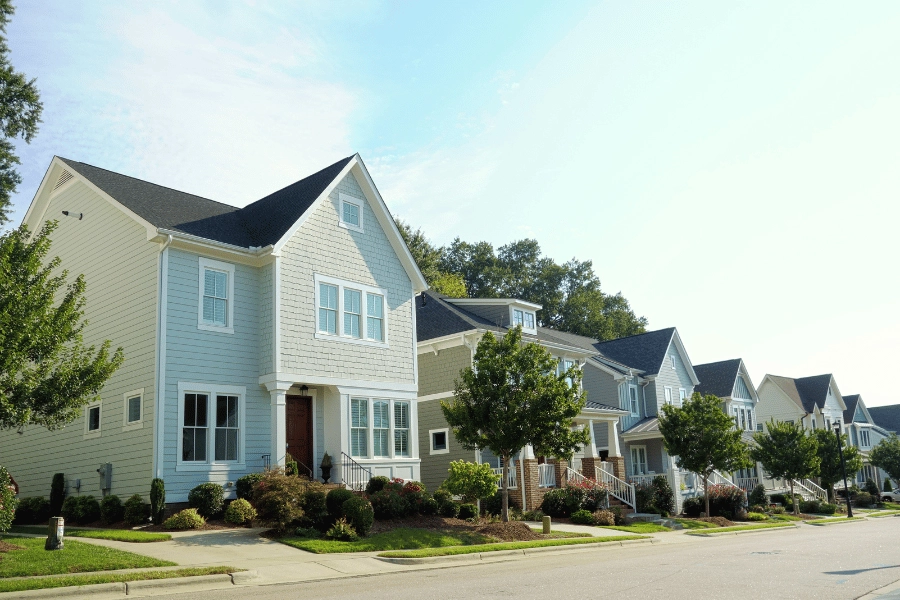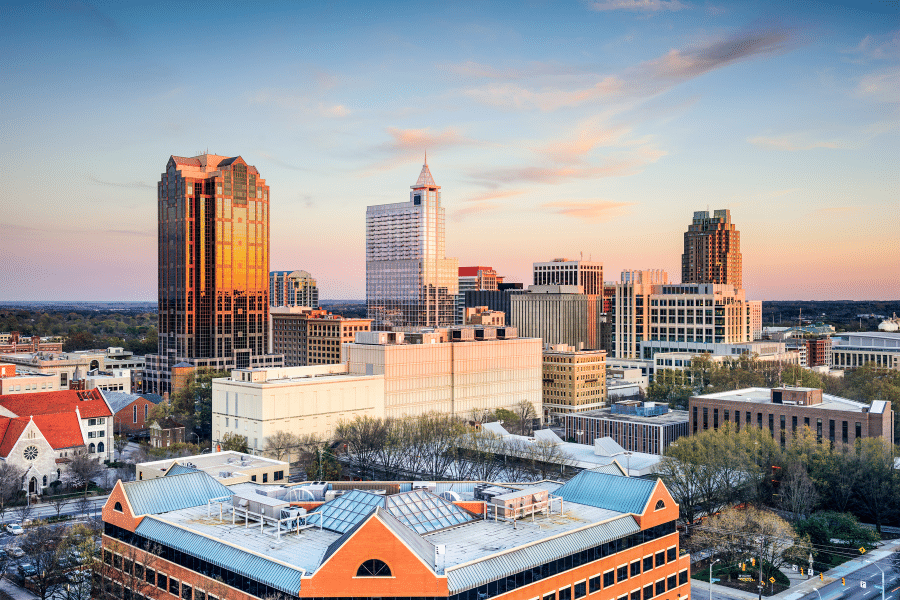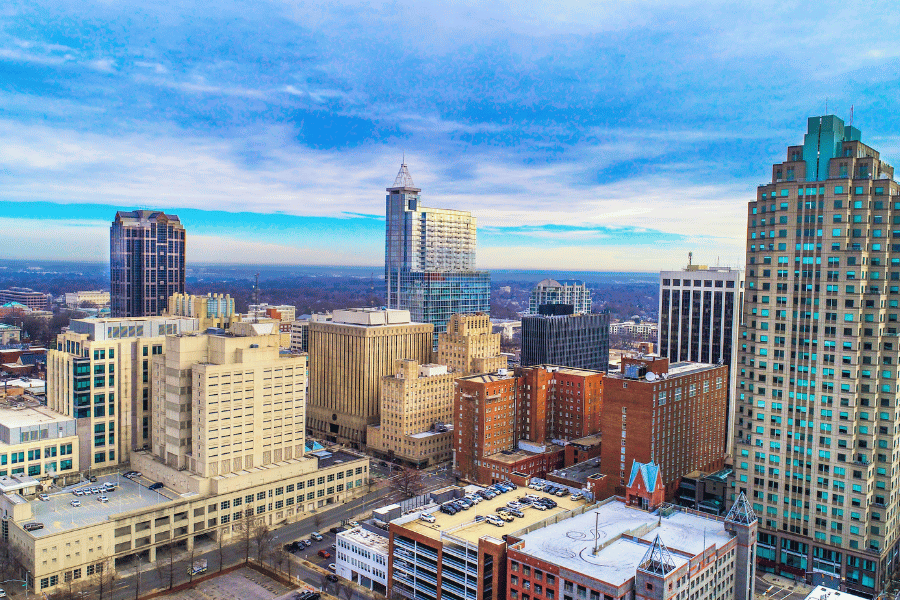The Importance of Location in the Real Estate Industry
Are you wondering why location is so important in real estate? Here is what you need to know about location and its critical role in the home-buying process.
When it comes to real estate, there's one phrase that has stood the test of time: "location, location, location." This isn't just an old saying; it's a fundamental truth that has guided successful real estate decisions for generations.
While granite countertops can be installed, hardwood floors can be refinished, and entire kitchens can be gutted and rebuilt, you can't pick up your house and move it to a better neighborhood.
When people have more flexibility in where they live, they become more selective about the communities they choose. The result? Premium locations have become even more premium, while less desirable areas face increasing challenges.
A neighborhood that seems average today might become tomorrow's hotspot, while an area riding high on past success might face challenges from changing demographics or economic shifts.
For buyers, sellers, and investors, understanding location dynamics can mean the difference between building wealth and missing opportunities. A $50,000 difference in purchase price based on location might represent $200,000 or more in long-term value creation.
In Raleigh's dynamic and growing market, understanding the critical role of location can mean the difference between a smart investment and a costly mistake. Let's explore why location remains the most important factor in real estate success and how to make it work for you in the Triangle market.
Keep reading to learn more about location and its importance in real estate.
1. Understanding Supply and Demand
Location drives real estate demand more than any other single factor. In Raleigh, certain areas consistently outperform others due to a simple economic principle: limited supply meeting high demand.
Prime locations near downtown, Research Triangle Park, or top-rated schools have geographic constraints that prevent unlimited development, creating scarcity.
In established Raleigh neighborhoods like Oakwood or Hayes Barton, the number of available lots has been fixed for generations. When demand increases, whether from job growth, population migration, or changing lifestyle preferences, prices must rise because supply cannot respond.
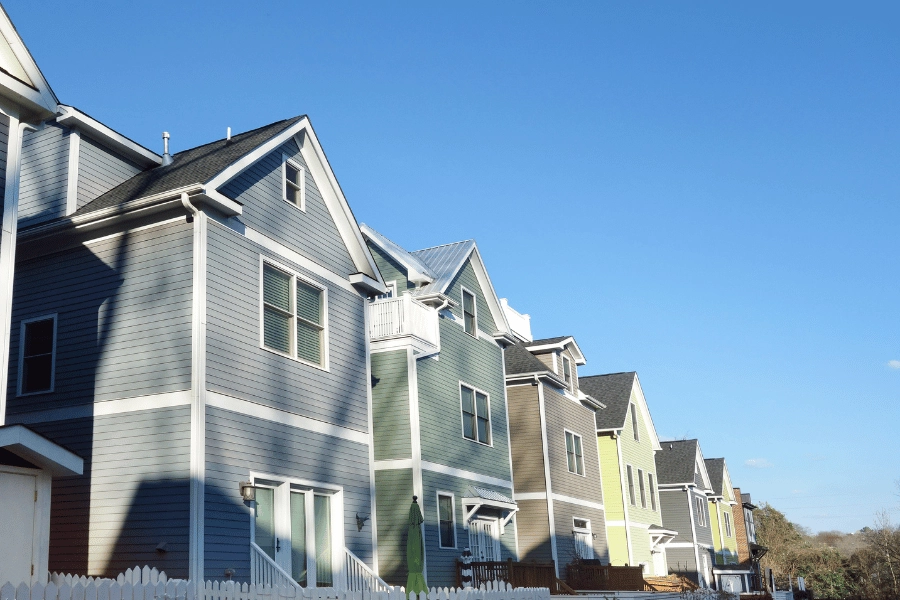
2. The Safety Premium
One of the most significant factors in location economics is safety and security. Safe neighborhoods command premium prices not just because residents prefer them, but because safety creates measurable economic benefits that justify higher costs.
In Raleigh, neighborhoods with low crime rates and strong community safety programs, such as North Hills, parts of Cary, and established North Raleigh communities, consistently outperform the broader market in both appreciation and market resilience.
Crime statistics and community safety directly impact both livability and property values. In Raleigh, several factors influence neighborhood safety profiles:
Crime Trends: Areas with consistently low and declining crime rates maintain a premium status. Buyers research not just current statistics, but trends over time.
Community Policing: Neighborhoods with active community-police partnerships and engaged residents typically maintain better safety records.
Physical Environment: Well-maintained properties, good lighting, and active neighborhood watch programs create environments that deter crime while supporting property values.
3. Why Prime Locations Become Premium Neighborhoods
Desirable locations don't become great neighborhoods by accident. They typically share several key characteristics that create a positive feedback loop of community development:
Infrastructure Investment: Cities and counties tend to invest more heavily in areas with higher property values and engaged residents. This means better road maintenance, improved public services, and enhanced amenities.
Community Engagement: High-value locations attract residents who are more likely to be involved in local government, school boards, and community organizations, leading to better decision-making and resource allocation.
Business Attraction: Quality neighborhoods attract quality businesses. From upscale restaurants to professional services, businesses seek locations where their target customers live and work.
Maintenance Standards: Premium locations often have homeowners' associations or community standards that maintain property values through architectural guidelines and landscaping requirements.
.png)
4. The School District Factor
School districts significantly impact property values and buyer demand. Many families are purchasing homes with the intent to raise children and are specifically searching for a good school district.
Properties zoned for top-performing elementary, middle, and high schools consistently sell for 10-20% more than comparable homes in average school zones. This premium reflects both the immediate value parents place on education and the long-term investment potential of homes in these districts.
The school factor creates interesting market dynamics. Homes near school district boundaries can have dramatically different values depending on which side of the line they fall. Experienced buyers often research not just current school assignments but potential redistricting plans that could affect future property values.
5. Transportation
Easy commutes to work are the icing on the cake for many home buyers. Whether it's driving a car, biking, public transportation, or even walkability, commute time is a very important factor when choosing a location.
According to the National Association of Realtors, 43% of home buyers reported that they bought a home due to its location and convenience to work.
In a growing metropolitan area like Raleigh, transportation considerations can make or break a location choice. Several factors deserve attention:
Commute Times and Routes: A 15-minute difference in daily commute time can significantly impact quality of life. Properties with multiple route options to major employment centers offer more flexibility and resilience against traffic changes.
Public Transportation Access: While Raleigh's public transportation is still developing, proximity to current and planned transit lines can boost property values. The planned BRT (Bus Rapid Transit) lines are already influencing development patterns.
Airport Accessibility: For professionals who travel frequently, proximity to RDU International Airport adds significant value. Areas with easy airport access without airplane noise find the sweet spot of convenience without drawbacks.
Walkability and Bike Infrastructure: Younger buyers and environmentally conscious families increasingly value neighborhoods where cars aren't required for daily needs.
.png)
6. Local Amenities
Local amenities have a direct impact on real estate prices in the area. Grocery stores, restaurants, shopping, and entertainment are some of the top amenities people are looking for when buying a home.
Buyers want these amenities within a five to ten-minute drive. If the location of the home you're buying is within a few miles of most of these amenities, it will help raise your property value.
The amenities surrounding a property create lifestyle value that translates to market value. Raleigh buyers particularly value:
Parks and Recreation: Proximity to greenways, parks, and recreational facilities adds measurable value. Homes near Umstead State Park, Lake Johnson, or major greenway access points typically command premiums.
Dining and Entertainment: Areas with walkable restaurants and entertainment options attract buyers willing to pay more for lifestyle convenience.
Shopping Access: While online shopping has changed retail patterns, proximity to quality grocery stores, pharmacies, and essential services remains important.
Healthcare Facilities: Access to quality healthcare, especially for older buyers, influences location decisions significantly.
7. How Location Affects Home Values
Location impacts home values through several different ways, including appreciation rates, market resilience, rental potential, and how easily and fast a home can be sold on the market.
Over the past decade, prime Raleigh locations have appreciated 20-40% faster than average areas. This premium compounds over time, creating significant wealth differences.
During economic downturns, prime locations typically see smaller value declines and faster recoveries. The 2008-2012 housing crisis demonstrated this pattern clearly in the local housing market.
Properties in desirable locations command higher rents and have lower vacancy rates, making them better investment properties even if owner-occupied initially. Homes in prime locations sell faster and with less price negotiation, providing more flexibility for owners who need to relocate.
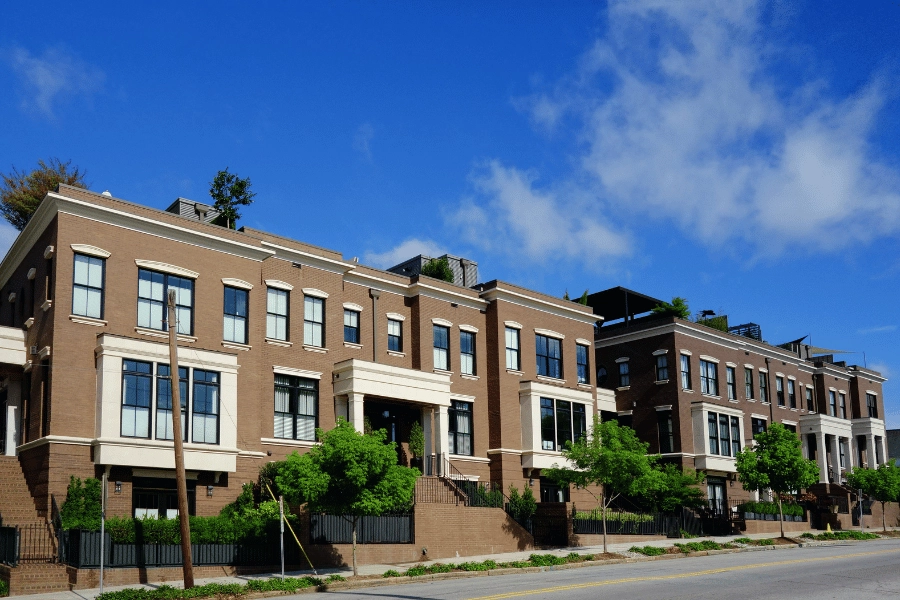
8. Location Vs. Property
This one can be a tough decision for many people, especially those who are first-time home buyers. When buyers face the classic choice between a great home in an average location or an average home in a great location, real estate professionals consistently recommend choosing location.
However, there are exceptions. If a property has serious structural issues, environmental problems, or is dramatically overpriced relative to the location, the equation changes. The key is understanding the cost and feasibility of bringing a property up to neighborhood standards.
Renovation Potential: Almost any property can be improved, expanded, or completely rebuilt. Location is permanent.
Market Dynamics: A modest home in a prime location will likely appreciate faster than a mansion in a declining area.
Lifestyle Factors: Daily frustrations with location (long commutes, poor schools, limited amenities) compound over time, while property limitations often become less important as families adapt.
Resale Considerations: When it comes time to sell, location determines your buyer pool. More buyers can envision renovating a home than relocating it.
9. Making Location Work For You
For buyers, it is essential to choose a location that aligns with your current life stage and overall long-term goals. First-time homebuyers should consider emerging neighborhoods with good fundamentals rather than trying to afford prime areas that strain budgets.
Growing families should consider school districts and family amenities, even if it means a longer commute or smaller home initially. Empty nesters, on the other hand, should focus on convenience, walkability, and proximity to healthcare and cultural amenities.
10. Raleigh's Most Coveted Locations
Raleigh is home to many beautiful neighborhoods that are safe and offer diverse location options. Providing distinct advantages and atmospheres, check out these top-rated places to live in Raleigh based on location:
Downtown: Areas like Glenwood South, Cameron Village, and Oakwood appeal to young professionals and empty nesters who want walkability and urban amenities. These locations command premium prices due to their proximity to employment centers and entertainment.
North Hills: This area offers a suburban feel with urban conveniences, making it popular with families and professionals. The continued development and investment suggest strong long-term value potential.
Research Triangle Park Vicinity: Communities like Morrisville, Cary, and parts of Durham benefit from proximity to RTP, one of the largest research parks in the world. The concentration of high-paying jobs creates sustained housing demand.
Established Suburbs: Areas like North Raleigh, parts of Cary, and certain Wake Forest neighborhoods offer larger lots, newer construction, and family-friendly environments while maintaining reasonable commute times to major employment centers.
.png)
Methodology
Data was sourced from the National Association of Realtors to determine the importance of location on real estate.
FAQs
What are the three most important things in real estate?
The three most important things in real estate are location, condition of the home, and price. These factors will directly impact the value of the home and its desirability on the market.
Does location matter when selling a home?
Location matters when selling a home and it plays a huge role in how fast it sells and how much money a seller will get for it. Homes in desirable neighborhoods tend to sell faster and at a higher price compared to homes selling in an unpopular location.
How does location affect property value?
Location can significantly impact the property value of a home. Property values in good location can increase by 5-10%, especially if the home is near public transportation, good schools, and popular amenities.
Your Location Decision Matters
Location matters; even the location inside the neighborhood will have a large impact on your home's value. In Raleigh's competitive real estate market, location decisions have lasting consequences.
The neighborhoods, schools, amenities, and economic factors surrounding your home will influence your daily life and financial future for years to come. Choose wisely, because while you can change almost everything about a property, you can't change where it sits.
At Raleigh Realty, we understand that every buyer's location priorities are unique. Our experienced agents can help you navigate the complex factors that make Raleigh locations desirable and guide you toward choices that align with both your immediate needs and long-term goals.
Are you ready to find your perfect Raleigh location? Contact Raleigh Realty today to start your journey toward smart real estate decisions that will serve you well for years to come.
